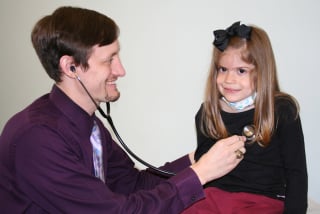This biochemical test is a quantitative measurement of alpha-fucosidase enzyme activity and can be used as a 1st tier test for patients with a clinical suspicion of Fucosidosis. Demonstration of deficient alpha-fucosidase enzyme activity is considered the gold standard to confirm a diagnosis of Fucosidosis.
In addition, this assay can be used to clarify molecular findings in the FUCA1 gene.
2 weeks
82657
$200
Fucosidosis is a lysosomal storage disease that is primarily characterized by coarse facial features, dysostosis multiplex, angiokeratomas, neurological symptoms and progressive psychomotor deterioration. Patients may also have hepatosplenomegaly and hazy corneas. There are two major sub types with type 1 having a more severe phenotype beginning around 6 months of age and death in the first decade. The milder type 2 is associated with longer survival and a slower progression of neurological symptoms and psychomotor delays.
This test can be used to confirm a suspected Fucosidosis diagnosis
Quantitative analysis will be performed using liquid chromatography-tandem mass spectrometry.
Enzyme activity can be measured in leukocytes, cultured fibroblasts, or dried blood spots. For leukocytes, please send 5-10 ml of whole blood in a green top (sodium heparin) tube. For dried blood spot collection, a minimum of three circles need to be filled in. Each circle should contain one drop of blood (about 100 microliters). See the link below for additional sample collection and handling instructions.
Whole blood samples (for leukocyte analysis) should be shipped at ambient temperature and must arrive at the laboratory within 24 hours of specimen collection. Cultured fibroblasts should be sent overnight at room temperature. For a dried blood spot: When the sample has dried 3-4 hours, fold cover at score line, over sample, and tuck into flap. Samples can be mailed at ambient temperature.
Call our laboratory at 1-800-473-9411 or contact one of our Laboratory Genetic Counselors for assistance.
Robin Fletcher, MS, CGC
Falecia Thomas, MS, CGC
Alex Finley, MS, CGC
